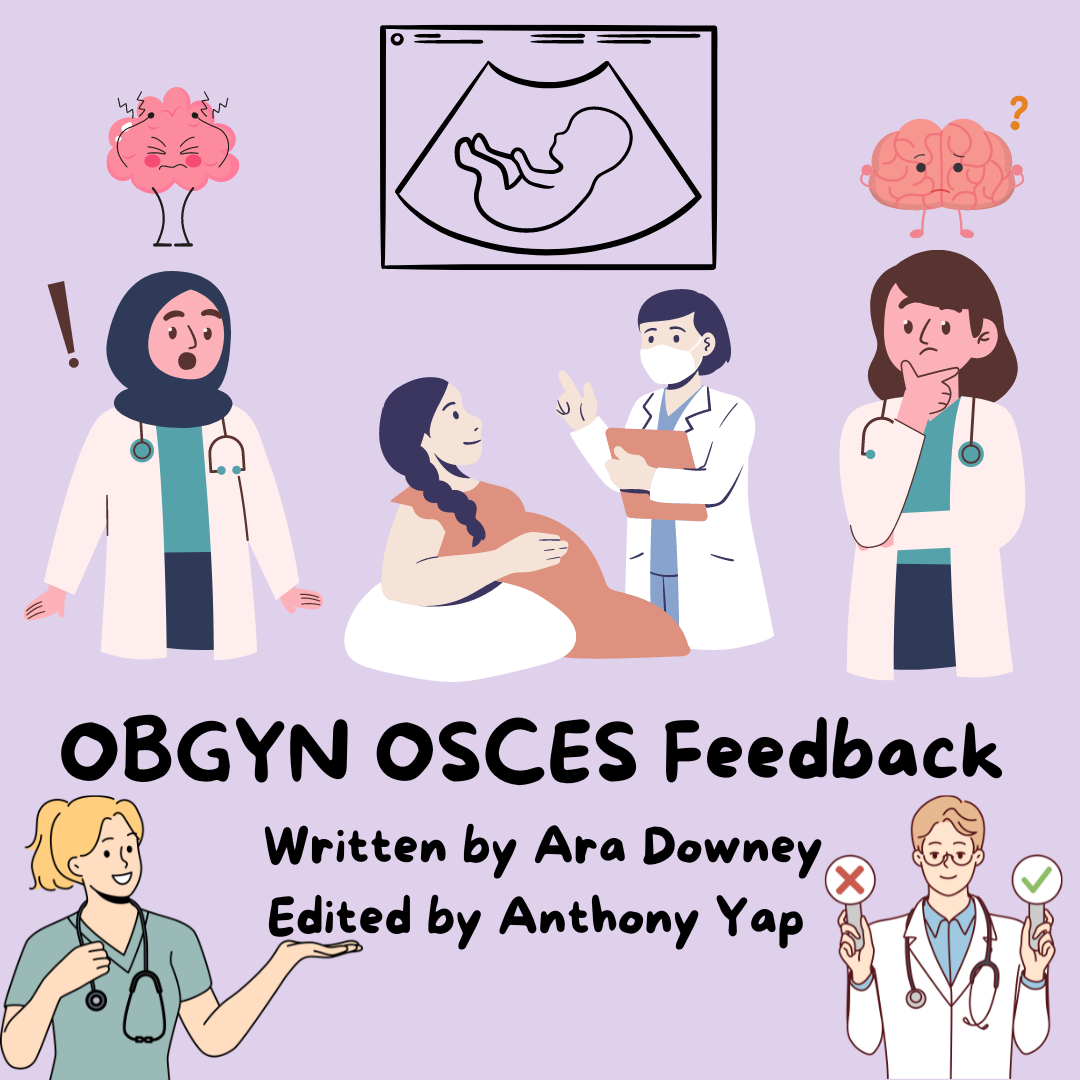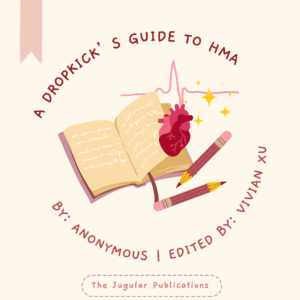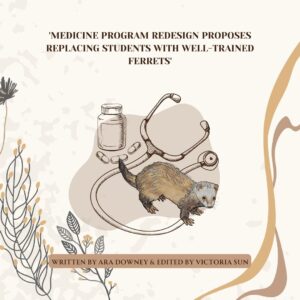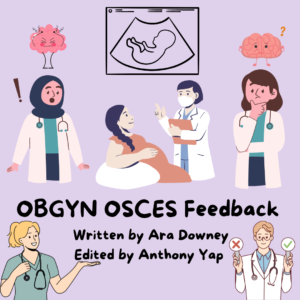
Written by Ara Downey & edited by Anthony Yap
Dear [STUDENT],
Please find attached the feedback for your Obstetrics and Gynaecology Clinical Examination. We regret to inform you that you have not passed this exam.
OVERALL GRADE: F
GENERAL FEEDBACK:
It appears that you were underprepared for this exam. Your discomfort was incredibly evident to the markers and we imagine also to the patient. We advise you spend more time familiarising yourself with common presentations of pregnancy, birth, and obstetrics prior to re-attempting this exam.
More specific notes are provided below.
- The examiners noted that you did not sanitise your hands upon entry.
- While the examiners understand that sometimes you may be surprised by a patient’s presentation or appearance, it is inappropriate to yell “OH MY GOD” when seeing a patient. Additionally, the extent of your surprise suggested you had little, if any, exposure to pregnancy previously.
- While the examiners appreciated your efforts to ensure the patient understood the limitations of your scope of practice as a student, for future reference it would be sufficient to simply state that you are a medical student rather than providing a three-minute overview of your education thus far and listing every procedure you are permitted to perform. This significantly cut into the time you had to take a history.
- The examiners noted that you took a GIT-focussed history rather than an obstetric history. Not only did this mean you missed several major findings, it also suggested a grave misunderstanding of the patient’s presentation.
- When summarising your findings, please be aware that it is unnecessary to describe the abdomen of a pregnant patient as ‘extremely distended’, as in this case this was a normal finding during pregnancy.
- Although the examiners noted you performed an abdominal ultrasound well, we feel that you displayed excessive shock upon discovering the foetus. The examiners encourage you to tone down your reaction in future and refrain from shouting.
- The examiners noted that your tone was potentially inappropriate when informing the patient that she was pregnant. They requested that you do not, in future, tell a patient they have ‘a very small person’ inside their abdomen. Please also note that at thirty-six weeks of pregnancy, a patient is usually already aware that they are pregnant.
- Please do not tell patients that their foetus is ‘most likely not malignant’. Not only does this show an obvious misunderstanding of pregnancy, this is not a common concern for a pregnant patient and is likely to create, rather than relieve, anxiety.
- Please do not wonder aloud where the infant came from. The examiners initially interpreted this as an inappropriately salacious comment; however, as the exam progressed, it appeared that you genuinely did not understand how the infant had come to be inside the patient. The examiners were extremely disturbed by this implication.
- The examiners noted your attempts to assess the foetal development, however, many of your comments heavily implied you were expecting the third-trimester foetus to be a fully-developed adult.
- While the examiners appreciated your efforts to use patient-centric language, please be aware that the term ‘child’ will suffice, rather than ‘person affected by childhood’.
- Although your statements were technically accurate, your comments about the predicted development of the child showed a shocking misunderstanding of obstetrics and paediatrics. Although this was not strictly a paediatric exam, it is expected you will have at least a basic functional awareness of childhood. Some specific comments are noted here:
- Please refrain from implying that childhood is a pathological process. Although technically correct to say that children will eventually develop into adults, it is extremely unusual to refer to this process as “recovering from childhood”. You can safely assume that the patient knows that their child will eventually become an adult.
- Regarding your comment, “when we remove the person from your abdomen…” This is a very strange way of referring to birth and made the patient feel uncomfortable. In general, when speaking to a pregnant patient, it is most appropriate to use the term ‘baby’, ‘infant’, or ‘child’. Do not say ‘the person’ or ‘the human’.
- The examiners surmised you were trying to communicate expectations about early childhood development. However, your comment that “the person will probably not be able to walk or talk for at least a year or two” raised unnecessary anxiety in the patient. It is entirely normal for a baby to be born unable to talk or walk. In future the examiners request you refrain from making such comments, especially as a medical student who should not be making prognostic assumptions.
The examiners noted candidly that this was one of the worst performances they have witnessed in many years and suggest you undertake significant remedial efforts to improve your understanding of obstetrics, gynaecology, and paediatrics before reattempting these — or frankly, any — examinations. The examiners wish you well and hope to never fall under your care in future.











































































































